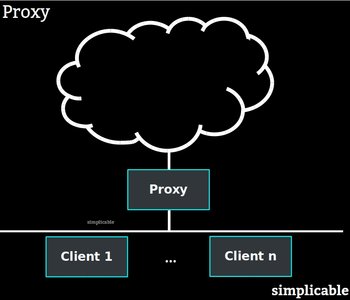
Loopback
A special IP that a machine uses to communicate to itself. This can have implications for security and bandwidth usage as you typically want to avoid using the internet to communicate to local software and devices. The IPs 127.0.0.1 to 127.255.255.255 are reserved for loopback. It is a common convention to use 127.0.0.1 and a host known as "localhost." Services that are local to a host typically bind to this IP on different ports.Home Network
A private network in the home that connects devices such as computers, TVs, printers, data storage, appliances, game systems, streaming media and communication tools. It is increasingly common for homes to have dozens or perhaps hundreds of devices that connect through a router. In this scenario, each device has its own private IP.Local Area Network
A network for a single geographical location such as an office that is configured to communicate internally by private IP.Campus Area Network
A network that connects multiple buildings at the same location often using private IPs.Metropolitan Area Network
A network that connects multiple locations across a city. For example, a company might set up a private network that allows dozens of offices in the same city to communicate using private IPs.Wide Area Network
A network that spans an area larger than a city. A private wide area network can be used to connect facilities such as offices, schools, data centers and retail locations across a nation or region using private IPs.Telecom Networks
Telecom companies may use a large number of private IP addresses to address customer devices. These are then translated to shared public IP addresses by a network address translator. This approach, known as carrier-grade NAT, is employed to conserve public IPv4 addresses that are in short supply.Cloud Infrastructure & Colocation
Hosts in a data center may be grouped into private networks that can communicate using assigned private IPs. In some cases, providers of cloud infrastructure or colocation charge a lower rate for bandwidth using private IPs over private networks provisioned by the provider.Notes
The following addresses are reserved for private IP.Range | Number of Addresses |
10.0.0.0 - 10.255.255.255 | 16,777,216 |
172.16.0.0 - 172.31.255.255 | 1,048,576 |
192.168.0.0 - 192.168.255.255 | 65,536 |
fd00::/8 | 18,446,744,073,709,551,616 |
| Overview: Private IP | ||
Type | ||
Definition | A numerical identifier that is used by software and hardware to communicate in a private network. | |
Related Concepts | ||






























